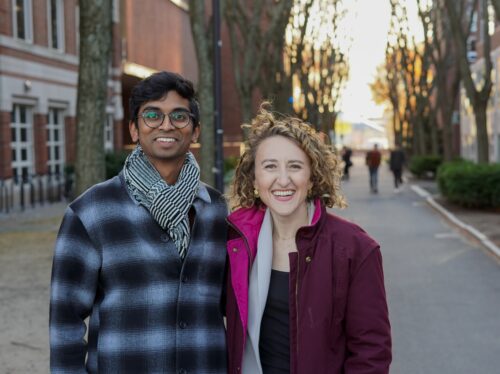In 2022, amid a cultural shift and a barrage of sensationalist headlines, Portland, Oregon passed some of the most expansive voting reforms by a major American city in recent history. Measure 26-228 revised the city’s charter, expanding the number of City Council members from four to twelve and electing them in four multi-member districts rather than at-large districts. Additionally, it introduced ranked choice voting and a professional city administrator. These changes aimed to diversify representation and ensure a more equitable distribution of power across the city. “These reforms were both significant and surprising, representing the city’s most fundamental changes in over a century,” note Max Kiefel, Nick Chedli Carter, and Archon Fung in a newly published case study examining Portland’s innovative approach to charter reform.
Using articles, meeting minutes, reports, and interviews, Kiefel, Carter, and Fung document the reform process for scholars, elected officials, and advocates while seeking to answer the question: why now? Between 1907 and 2007, there were at least seven ballot initiatives aimed at reforming Portland’s commission governance structure. They all failed, often focusing more on consolidating mayoral power rather than improving democratic processes. “Why then, in 2022, was voting representation and democratic reform firmly on the agenda, and did this contribute to Portland finally voting for change?” ask the authors.
On one hand, the authors found that Portland’s government was overdue for change. Portland, Oregon is a progressive city where nearly 74% of the population is white. Until recently, the City Council, too, was overwhelmingly made up of white men. Many attributed this lack of representation to its government structure; before Measure 26-228 passed, Portland was the only city in America retaining the commission form of government. The system led to a host of problems, including poor coordination, a lack of long-term planning, and general inefficiencies. In addition, many were concerned that the commission form was more amenable to advantaged citizens.
Against this backdrop, Portland found itself in a unique situation in 2022. It had just emerged from some of the most stringent COVID-19 restrictions in the country, and the city’s intense protests in the wake of George Floyd’s murder had led to “a widespread perception that Portland was ‘broken.’” At the same time, the city was approaching its second decennial charter review process, requiring the City Council to convene a Charter Review Commission. The process “provided a readymade institution to enable the willing to engage in reform.”
The authors found that this broader political and structural context primed Portlanders to vote for democratic reform in 2022 and “created a permissive environment for issues of minority representation and voting rights to feature prominently in any reform proposals.” However, “ … this does not necessarily explain why earlier attempts at charter reform lacked the scope of proposals in Measure 26-228.” While the 2020-2022 Charter Review Commission proposed the specific reforms that were included in Measure 26-228, the authors credit a broad coalition of grassroots organizations, minority communities advocating for better representation, and progressive activists with developing the reforms and priming Portlanders to embrace them.
In fact, advocates and activists initiated critical organizing efforts as early as 2014, then leveraged years of advocacy and community organizing to build momentum for reform, despite facing opposition from established political figures and business interests. “Their organizing efforts proved valuable in building sufficient pressure to resist opponents’ attempts to stymie the reform before and after the public vote … Specifically, they identified the Charter Review Commission as an opportunity to influence city reform by positioning themselves and allies to influence the commission’s agenda once appointed.” While the timing was right for Measure 26-228, the authors believe that it would not have passed in its current form without a concerted effort and long-term commitment from key community members.






